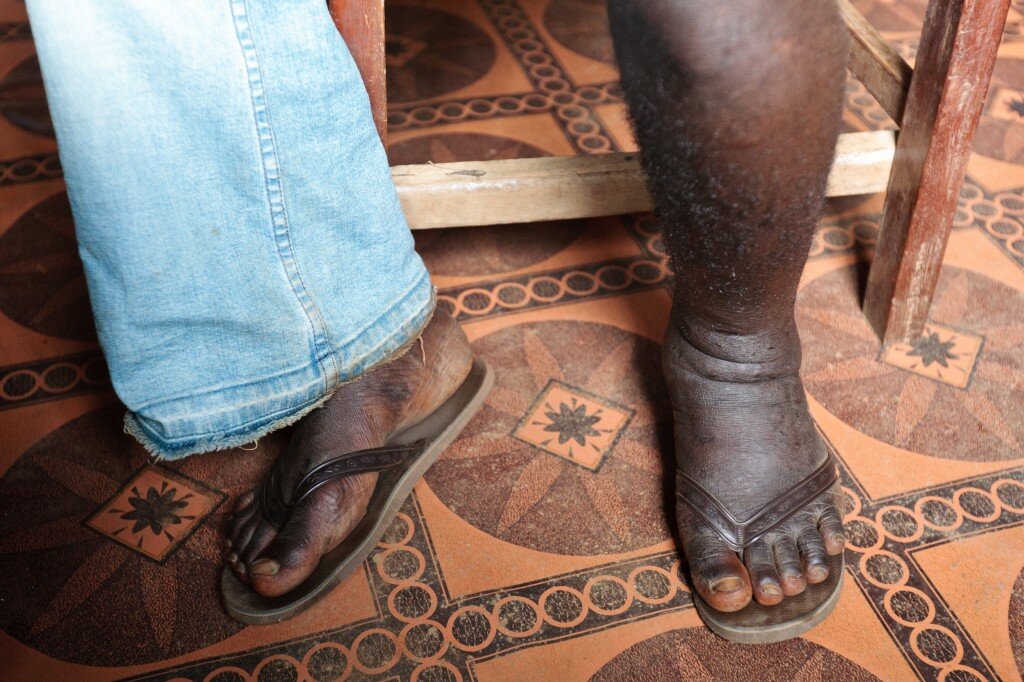Update: Dr. Peter Hotez shared his perspective in Infectious Disease News on Haiti’s efforts to eliminate lymphatic filariasis. .
For those of us in the United States, a mosquito bite is just a harmless itchy nuisance. But for around 120 million people in 80 countries, a mosquito bite can be life-altering.
By transmitting the larvae of parasitic worms, mosquitoes have caused widespread lymphatic filariasis, or elephantiasis, in mainly tropical and sub-tropical climates. Infected people don’t just suffer from devastating physical problems – weakened immune systems and disfiguring inflammation of the skin, limbs and genitals – they also endure social ostracization, chronic unemployment and endless poverty.
Fortunately, as the World Health Organization (WHO) observes, mass-drug administration (MDA) programs have effectively treated symptomatic people, protected healthy populations and, in a couple of countries, entirely eliminated the disease as a threat. Thanks to donations from pharmaceutical companies, international political commitments and people’s willingness to be treated, even more meaningful progress will take place in the coming years.
Haiti is just one of many nations that has implemented an MDA intervention and seen positive results. NPR’s Jason Beaubien reported last week that the Haitian Ministry of Health “is on track to wipe out elephantiasis within the next four years.” This assessment is based on the Center for Disease Control’s examination that found, “by late 2011, all areas in Haiti where LF is endemic had received MDA, except Port-au-Prince, which was considered the most challenging area.”
Mr. Beaubien also noted that Haiti’s efforts to manage elephantiasis will spark change in the rest of the region. Dr. Patrick Lammie, who the Global Network posted an interview with last week, commented:
The successful deworming campaign in Haiti is a major step forward not just for the country but for the whole region, says Patrick Lammie, an immunologist with the Centers for Disease Control and Prevention, who also contributed to the current study.
“If a country like Haiti, with all of the challenges that they’ve faced over the last few years, is able to achieve full national coverage, I think that is as an important example for other countries, which are struggling to scale up their programs as well,” he says. Eliminating elephantiasis in Haiti would also help the Dominican Republic control the disease.
Over the next few years, we look forward to tracking Haiti’s progress on the elimination of elephantiasis and the improvement of Haitians’ health and well-being.
Click here to read the full NPR article.

